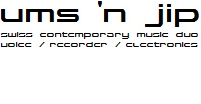__ Hard Facts (Nackte Tatsachen)
![]()
![]()
PROGRAM
Maria Porten
Des Kaisers neue Kleider, 2021-23
nach dem gleichnamigen Märchen
von Hans Christian Andersen
UA/WP
Max E. Keller
Muss verboten werden, 2019/20
UA/WP
Thiago Cury
Epitáfio do Indignado, 2019-21
UA/WP
José Julio Diaz Infante
Piolín, 2015
EP
![]()
IDEA
Politische Musik. Hard Facts (Nackte Tatsachen) ist
ein Programm mit Neuer Musik zu verschiedenen aktuellen
politischen Themen. Die vorgestellten Werke sind von
KomponistInnen, welche die Arbeit von UMS ´n JIP seit vielen
Jahren begleiten und aufgrund dieser Erfahrungen mit ihnen
besonders gut vertraut sind. Die Schweizerin Maria Porten
weist in Des Kaisers neue Kleider - mit einem Epilog zum
Klimawandel und zur globalen Ressourcen-Misswirtschaft - auf
die Verlogenheit und Augenwischerei heutiger Politik. Max E.
Keller, ein Urgestein politisch engagierter Musik in der
Schweiz, entwirft mit "Muss verboten werden" eine musikalische
Utopie, in welcher das Anarchische, Wilde, die Sensibilität
und die Stille, Freiheit, Gleichberechtigung, Kreativität und
Rücksicht fruchtbringend nebeneinander bestehen. Epitáfio do
Indignado des Brasilianers Thiago Cury ist ein verzweifelter
performativer Aufschrei gegen die smarten und manipulativen
popkulturellen und rechtspopulistischen Kampagnen im aktuellen
Brasilien, die zur Wahl von Jair Bolsonaro geführt haben. Mit
Piolín des Mexikaners José Julio Diaz Infante schliesst das
Programm Hard Facts (Nackte Tatsachen) - ein
ironisch-verspieltes Nachspiel: Piolín
ist der spanische Name für die US-amerikanische
Zeichentrickfigur Tweety und
gleichzeitig ein Hybrid von Piano & Violín, die beiden
Instrumente, welche im Stück performativ bespielt werden.
Metaphorisch wird auf einen Weg gewiesen, in welchem alt-neue
Instrumente rekontextualisiert werden und damit einen neuen,
frag-würdigen wie reiz-vollen Raum erhalten.
![]()
COMPOSERS & NOTES
Thiago Cury is at home in a multitude
of sectors, from live and education to recorded and
publishing: The Brazilian arts manager, musical producer and
studied composition, he has been developing sound creations
for cinema, theater, opera, dance, performance and art
exhibitions since 1993, collaborating with Coffin Joe, Jorge
Bodansky and Teatro da Vertigem amongst others. His music
has been played at festivals like Festival Música Nova and
Encompor amongst others and has won prizes, e.g. Concurso
Nascente/USP, and been awarded at Festival Internacional de
Cinema de Brasília, Festival de Teatro de Americana. In 2005
Thiago Cury founded ÁguaForte, a record label and publishing
company, where he develops special projects in music,
producing concerts, recording CDs and LPs, and publishing
scores. In 2010 Thiago Cury worked as the Director of the
Music Center of Funarte (Brazilian national foundation for
the arts). In 2013 he created the Strange Music Festival in
São Paulo. ÁguaForte
| thiagocury.com | strangemusicfestival.com
Maria Porten. Born in Germany 8.6.1939. After the
war soon on normal education track: schools, studies at the
University of Cologne (German language, musique, philosophy,
college of musical education). For a year, teaching German
literature in Carbondale, Illinois, USA. In Switzerland:
Doctoral thesis „Debussy and his musical genre“. Teaching
assignment at a school for adult education. Private
composition studies. Engaged Projects: 2003 Srebrenica -
Behaudin Trakic. 2004 Advent of the animals - Karlheinz
Röder. 2006 Vontobel Price. Cooperation with contemporary
authors, poets, stage directors and ensembles. 2006 Once
there was a paradise - Portrait CD VDE-Gallo. 2007 Ferne
Schritte. Nähe - Switzerland meets Japan. 2010
Frauenzauberfrauen - Walter Studer - commissioned by
Gesellschaft Rezital Zürich. 2011 Sargnääl möt Köpp - Ludwig
Soumagne (Kölsch, Cologne dialect). 2013 Hexenzauber -
Ariane Braml. 2013 Lorelay (Melodrama) - Clemens Brentano.
2016 Warten - Walter Studer - from : Wege und Warten,
coproduced with Werner Bärtschi. 2017 Haschen nach Wind
- for the 100. anniversary of Gerhard Meier, famous
Swiss author, commissioned by Musikpodium der Stadt Zürich,
broadcasted by Swiss Radio SF2 Kultur. Sang et Lueurs
(setting poems by Jacques Prévert) and lebelight (setting
poems by Ivar Breitenmoser, from „Zürich tanzt Bolero“) have
been performed by UMS 'n JIP in Switzerland, Spain, Greece,
Turkey, Japan, China, Berlin, Wien, Avignon, St.Petersburg,
Moscow, Riga, Cairo and New York. Both works, staged within
"EINER" as a contemporary opera by Pablo Maritano and
Eugenio Szwarcer, have been given at the Centro de
Experimentation del Teatro colon in Buenos Aires. Most
recent work: „Olive Trees“ and „Virgen del Mar“ are chapters
from the literary work „Walls of Paradise“, in which Jeanine
Osborne relocates the biblical legend of paradise into a
village callled Val Paraiso in Andalusia, Spain. http://porten.ch
Max E. Keller was one of the first free jazz
musicians in Switzerland. From 1966 until 1973 he followed
his own concept performing free jazz and improvised music on
the piano and electronic instruments in concerts or for
radio recordings in Switzerland, Germany, Belgium, Poland
and Czechoslovakia. Since 1973 Keller has produced over 90
compositions for various forces including electronic music.
He often sets texts to music, examples include his ‘Gesänge
II’ (Erich Fried); ‘Gesänge III’ (Jürg Weibel) and ‘Gesänge
IV’ (Kurt Marti); ‘Konfigurationen’ (I, II and III – various
authors); ‘Deformationen’ (self-written texts); the
feature-length cantata ‘Fontamara’ (Ignazio Silone), the
mini-opera ‘Egon – aus dem Leben eines Bankbeamten’ (Hans
Suter) and the chamber opera ‘Die Axt’ after Max Frisch’s
‘Graf Öderland’ (2004-2006), a commission for the Komischen
Oper Berlin. Performances and radio broadcasts in the whole
of Europe, Australia, North and South America, Russia,
Mongolia, Korea and Azerbaijan are a part of his career
history. Keller began improvising again after 1985 and since
1985 is responsible for the programme and organisation of
contemporary music and jazz concerts at the ‘Theater am
Gleis’ in Winterthur. 1985 - Swiss representative at the
biennale in Berlin, 1991 - Swiss representative at the IGNM
Weltmusiktagen in Zurich, 1993 - Swiss representative in
Mexico, 1997 - Art prize of the
Carl-Heinrich-Ernst-Foundation in Winterthur, 1999 - Berlin
stipend, 2001 - Project contribution (commission from the
Tonhalle-Orchester Zürich), 2003 - Contribution to the
artistic work of the Aargauer Kuratorium. ‘Sicher sein ...’
(speaker and electronic tape) and ‘Repetitionen I-V’
(harpsichord) were recorded onto LP and ‘Pentalog’
(orchestra) and ‘Sie’ (speaker and electronic tape) onto CD;
two CDs (col legno and Jecklin Edition) are dedicated solely
to his chamber musical works, a third CD (Grammont-Portrait)
containing five chamber musical works and one orchestral
work (Tonhalle-Orchester conducted by David Zinman) was
released in 2003. http://www.max-e-keller.ch/
Muss verboten werden, für Tenor/Contratenor und Bassblockflöte 2019/20, 12 min. Der Text besteht aus Satzfragmenten wie "Muss verboten werden", " Muss geregelt werden", "Muss umerzogen werden", "Muss eliminiert werden". Er sagt nicht, wer was verbieten will, aber er markiert eine gesellschaftliche Tendenz: in Europa, Russland, China, in arabischen Ländern, Nordkorea, USA u.a. wird auf verschiedensten Gebieten und von verschiedenen politischen Positionen aus, von links und von rechts, versucht, mit autoritären Direktiven, digitaler Überwachung und Verboten die Menschen zu bevormunden. Das muss nicht immer so extrem sein wie in China, wo eine Million Uiguren inhaftiert und umerzogen werden. Besser getarnt versucht Facebook unter dem Deckmantel der Hilfe und Verbrüderung, uns auszuhorchen und menschliches Verhalten zu manipulieren. Der Text ist andererseits aber ein indirektes Plädoyer für Freiheit, für Selbstbestimmung, für Meinungsfreiheit. Die Musik ist sozusagen diese unausgesprochenen Gegenwelt. Sie ist anarchisch, ungeordnet, wild, aber auch sensibel und still. Der Freiraum der Interpretierenden ist gross, oft improvisando. In den vier "Feldern", die insgesamt fast einen Drittel des Werkes umfassen, ist das Material nur verbal umschrieben, die konkrete Ausgestaltung und Anordnung ist den Interpretierenden überlassen. So entwerfen sie ein freies, gleichberechtigtes, kreatives, rücksichtsvolles Leben. Auftrag von Ulrike-Mayer Spohn und Javier Hagen (UMS 'n JIP), denen das Werk gewidmet ist.
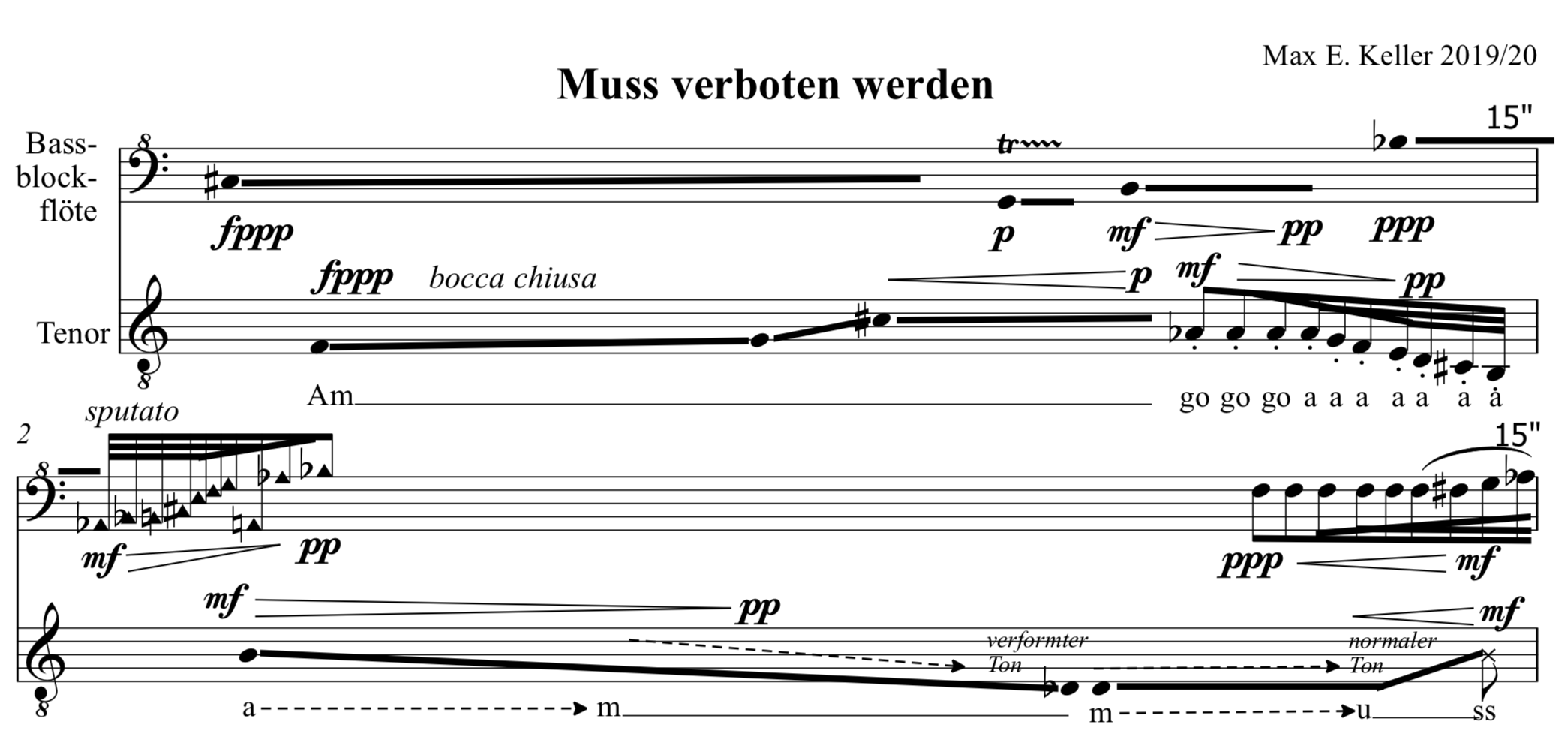
COMPOSITOR JOSÉ
JULIO DÍAZ INFANTE, DIRECTOR ACADÉMICO DEL Centro de
Investigación y Estudios de la Música (CIEM)., Egresado del
CIEM , Licenciado por Trinity College, Londres. Maestría por
University of Lousville, Estados Unidos. Imparte en el CIEM
las Materias de : Composición, Orquestación y Técnicas de
Desarrollo. El Instituto Nacional de Bellas Artes
(INBA) anunció que el maestro y compositor José Julio
Díaz Infante reemplazará a Jaime Ruiz Lobera
como nuevo Coordinador Nacional de Música y Ópera. Por
tres años formó parte del comité de programación del
Foro Internacional de Música Nueva Manuel
Enríquez, uno de los festivales mas importantes de
América Latina. La música de Díaz Infante ha sido
interpretada y reconocida en varios lugares de Estados
Unidos, México y otras partes de América Latina.
Tweety (Piolín) ist ein neugieriges
Vögelchen, das beim Sprechen lispelt. Im Vogelkäfig bei
Dame Granny sitzt er am liebsten singend auf der Schaukel.
Dabei wird er vom fiesen Kater Sylvester oft gestört. Der
schleicht um Tweetys Käfig und versucht, den Vogel zu
fangen. Kein leichtes Spiel für Tweety. Aber mit
Geschicklichkeit und Glück entkommt er dem Kater.
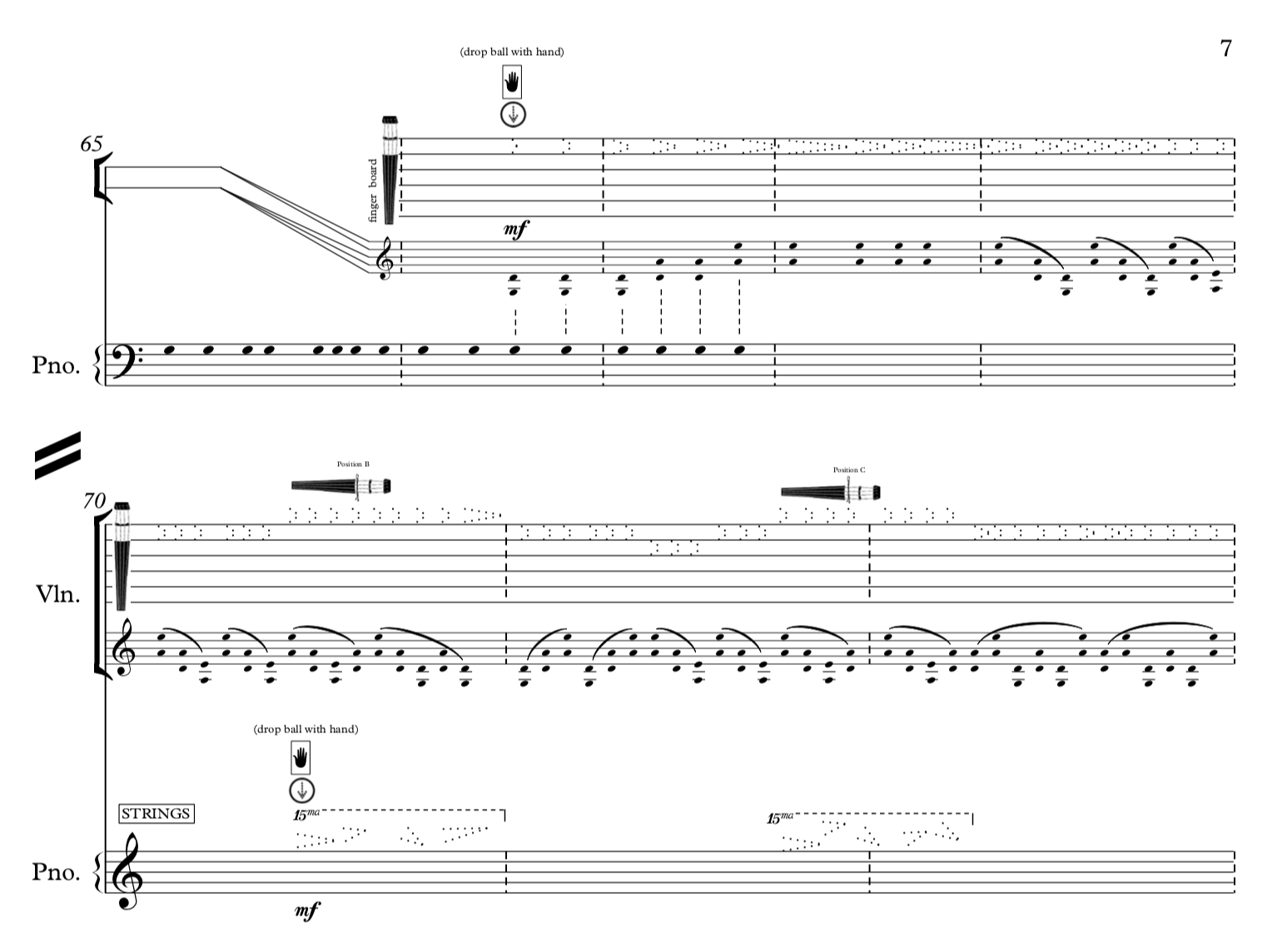
![]()
PHOTOS
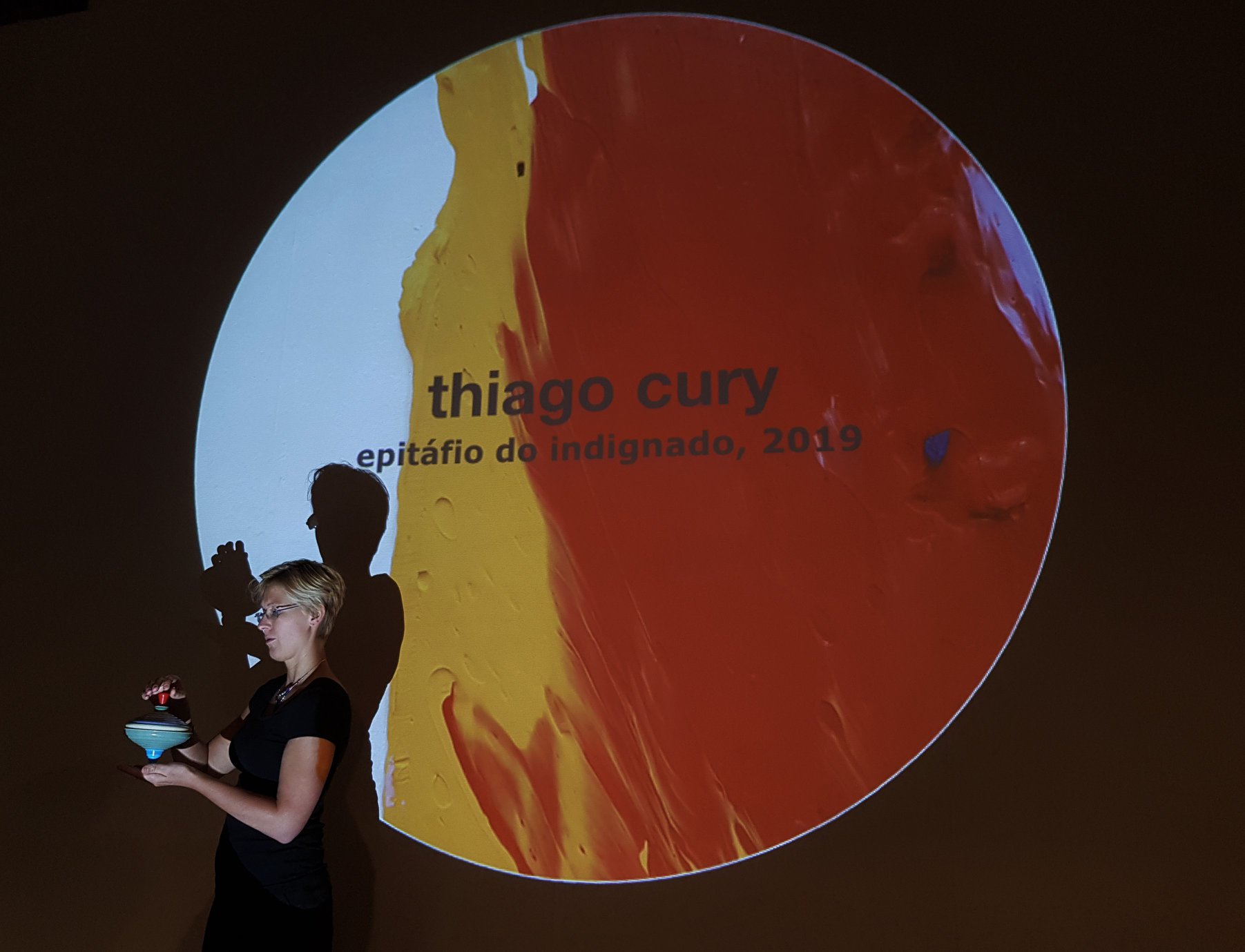
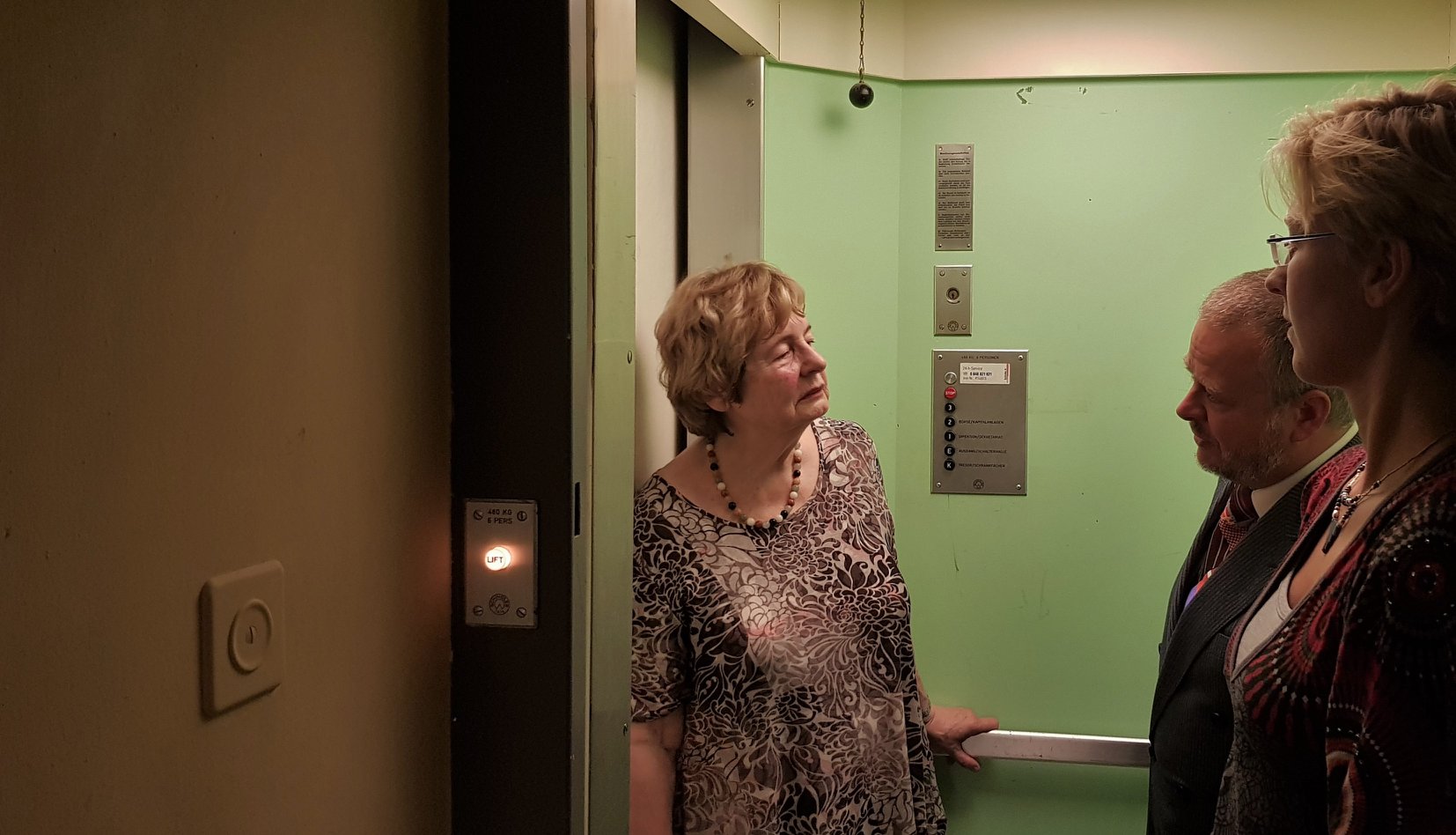
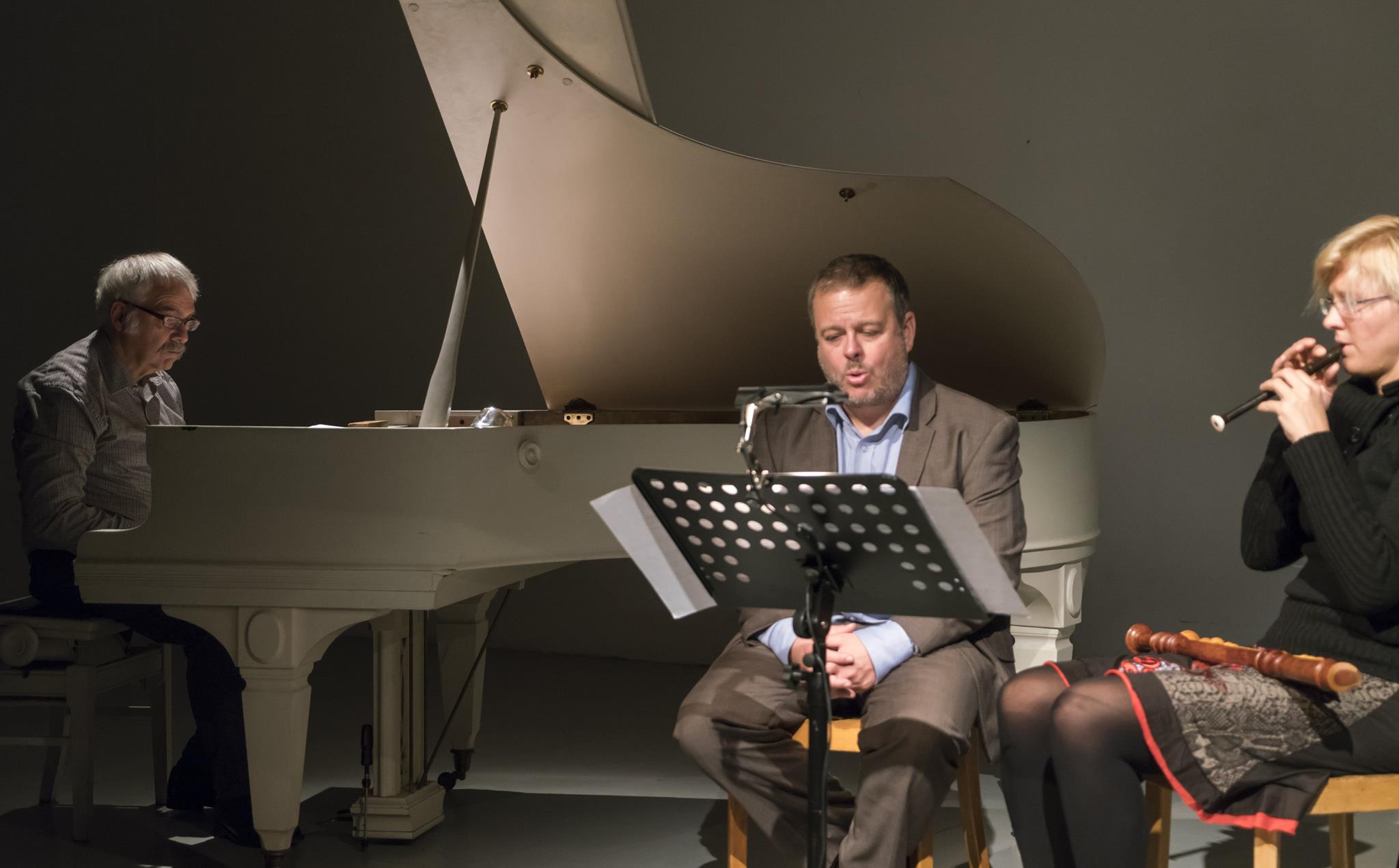
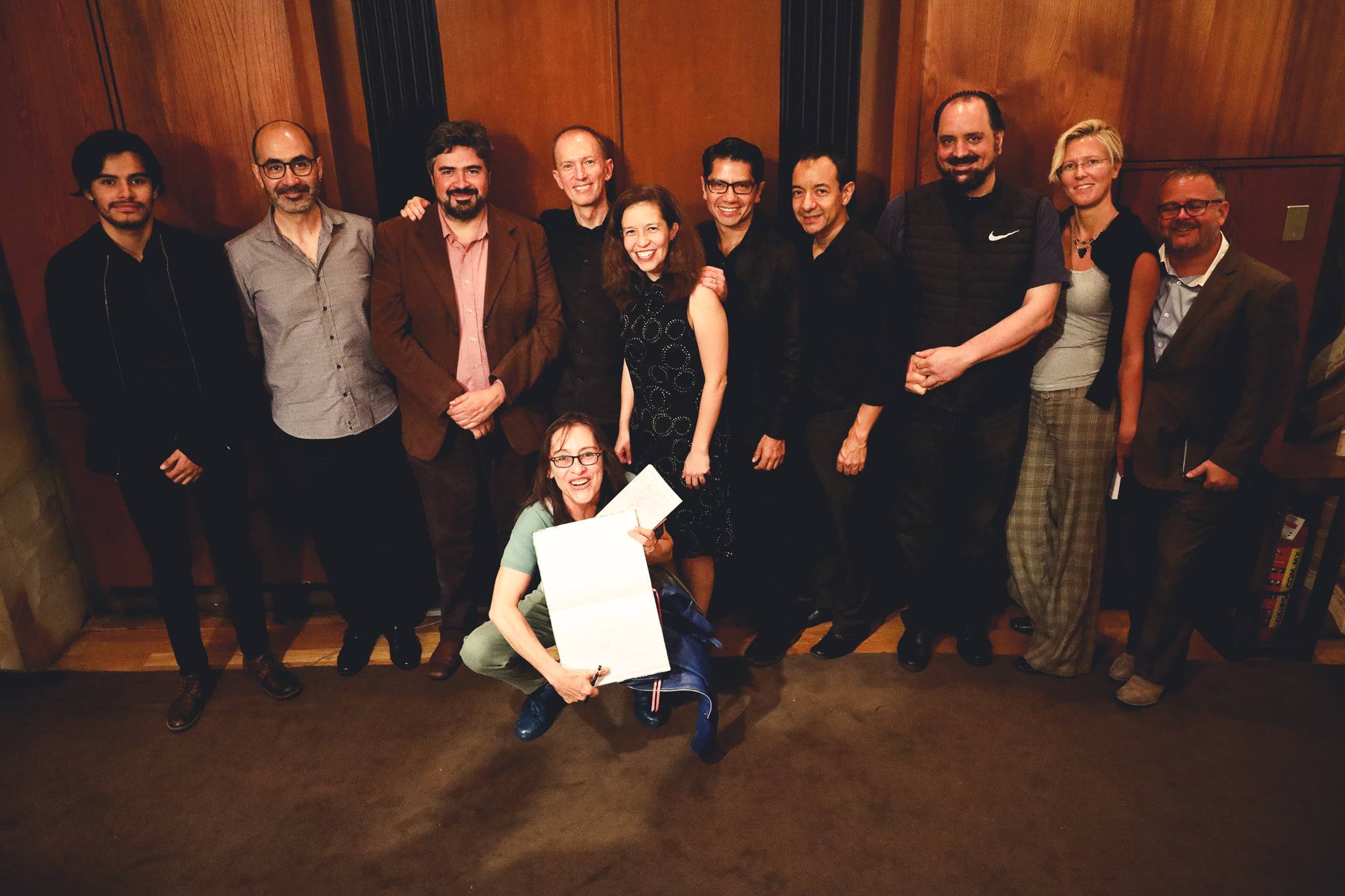
with Thiago Cury, FNOBA 2016, Teatro Colon Buenos Aires
with Maria Porten, 80 Jahre Maria Porten, Unternehmen Mitte Basel
with Max E. Keller, performing Mobile at Kunstraum Walcheturm Zürich
with JJ Diaz Infante, Palacio de Bellas Artes CDMX
